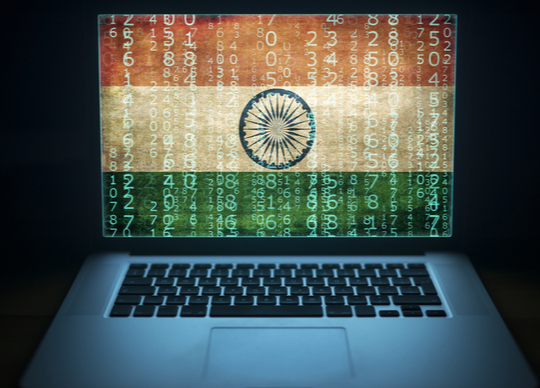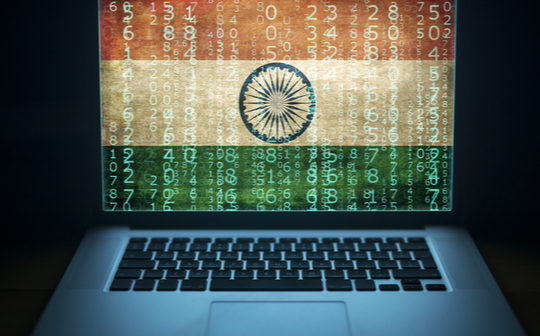
By Sarosh Bana, Mumbai Correspondent.
A 38-year-old man in Mumbai was driven to suicide, hanging himself at his home after being hounded by loan sharks who not only threatened him to repay the loan, but sent humiliating messages and his morphed photographs to his family and colleagues in a bid to malign him.
Tragically, the victim had not even taken a loan, but had been tracked as he scanned one of the many questionable websites ostensibly offering loans, and was snared by the fraudsters prowling on the internet for prey. He leaves behind a grieving six-year-old son, wife and parents.
An impetus to criminality has been one of the many downsides of COVID-19, with many who have been financially-stricken by the prolonged pandemic pursuing desperate ways to make money. More unfortunately, their victims are often similarly financially-stricken individuals.
India’s financial capital of Mumbai is among the many cities in the country witnessing a surge in cybercrime where citizens, the young as well as the elderly, men as well as women, are falling prey to online marauders who have been progressively innovative in their craft.
A new modus operandi of some has been the thriving loan market, with questionable mobile apps mushrooming on the internet that entice potential borrowers with offers of instant loans and pre-set credit limits. The apps – with names like PaPaMoney, SunCash, Koko, CashCow, LemonCash, Wallaby, JaneCoin, RupeeTiger, CashAdvance and Alexandria – seek personal data and promptly gain complete access to the borrower’s phone, following which they resort to ruthless recoveries by recruiting agents, sometimes collegians, who they offer generous commissions from the amounts they can reclaim. These apps appear at times to be networked or controlled by common managements, because the borrowers are harassed not only by the lending apps, but by others too.
The coronavirus chaos drove many out of work, many were forced to sell off their failing businesses, many even withdrew their children from school or shifted them to cheaper schools, many sold off their homes and moved to inexpensive places, or started renting accommodation, and many became afflicted with physical or psychological ailments. In a land where poverty is chronic, the fallout of a pandemic can be more vicious than elsewhere, because many a man of the house is the sole breadwinner for his family, and if he is harmed, his entire family is pulled down with him.
The victim who committed suicide took the extreme step when he was alone at home. His brother later mentioned that they had made several complaints to the local police about the derogatory messages and threatening phone calls, but the police did nothing beyond registering the complaint. The man had informed his brother that though he had not taken any loan, he had been receiving abusive and threatening phone calls from different numbers, demanding repayment. The fraudsters had also been calling the man’s colleagues at work and they had been questioning him about these calls.
Following the suicide, the police registered a case of accidental death, and a separate case against unknown people on charges of abetment of suicide, cheating and dishonestly inducing delivery of property, punishment for defamation and punishment for cheating by personation by using computer resource.
In March, a 43-year-old woman from a suburb of Mumbai had similarly committed suicide, having been unable to cope with the unceasing harassment and social humiliation by loan sharks.
Another young man, who worked at a multinational fast food chain, had borrowed Rs8,000 (about A$146) from two different lending agencies for a medical emergency in his family. He was granted a week for repayment, but on the sixth day itself his friends and colleagues were deluged with morphed photographs and videos of him performing sexual acts. Even his parents, sister and brother were not spared. His superiors at work were incensed by this, and despite explanations from him, summarily dismissed him. The distraught man turned to his friends and colleagues for support, but was turned away. He contemplated suicide, but fortunately for him, changed his mind.
A 22-year-old woman, employed in a suburban real estate firm, took a loan of Rs7,314 (A$134), but upon receiving the amount got a message demanding a repayment of Rs20,000 (A$366), including interest. Distraught, she borrowed from relatives to pay up the amount in instalments, but the brigands shared her personal details with photographs on social media, with the message: “Whoever helps me by repaying the loan can have sex with me and my mother.”
A 42-year-old man who had borrowed Rs30,000 (A$550) for medical treatment of his mother could pay back his loan only three weeks later than the deadline, and underwent the same ordeal as the other borrowers, almost losing his job in the process. His office management summoned him for a clarification, but fortunately did not penalise him, considering his track record and hard work. But he said that when he pleaded with the callers to stop hounding him or else he would kill himself, they retorted, “Pay first and then die.” Though he filed a police complaint, the police registered no offence.
A college student arrested from India’s IT hub city of Bengaluru told the police that he dropped out of college to start working at a call centre. His job was to call people as a recovery agent for a 10 per cent commission of the recovery amount, in addition to his fixed salary. He and his colleagues, many college dropouts like him as also the jobless, gain access to the borrowers’ contact list on their mobile phones and spam them with hundreds of messages daily, humiliating and insulting them before their friends and relatives.
With this loan terrorism rapidly getting out of control, the Mumbai police have finally decided to act in the matter. They have formed a dedicated 10-member team to investigate the death of the 38-year-old local man who hanged himself, with the belief that cracking this case will aid the police force in dealing with such cases registered with them.
Though the move is tragically belated, there should be no further delay in tracking down the accused and proceeding against them, before they can cause further misery to their unwitting victims.






